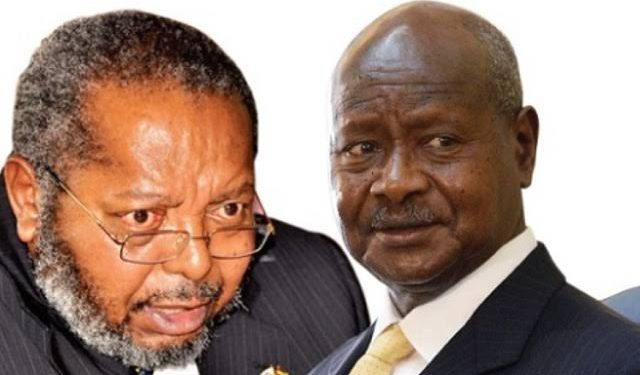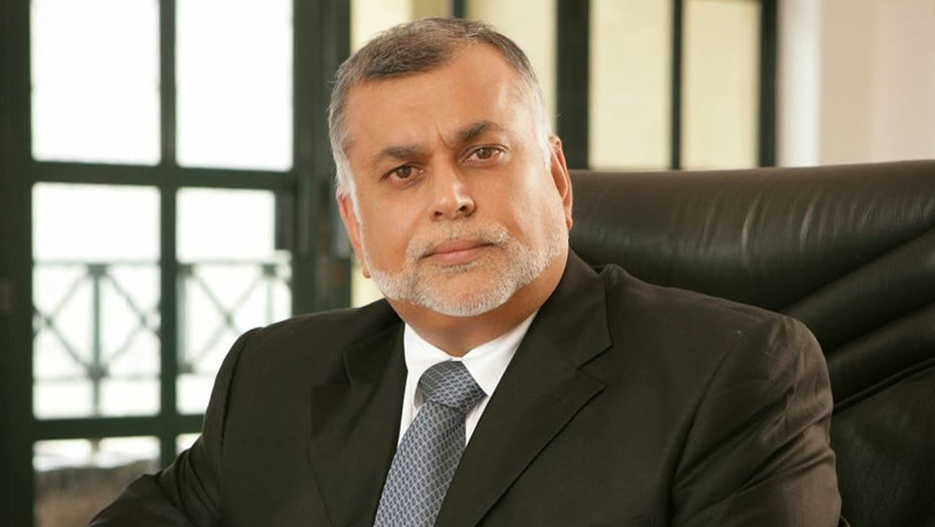BY URN
KAMPALA-UGANDA/NEWSDAY: PresidentYoweri Museveni has expressed regrets over the sale of Uganda Commercial Bank (UCB) and appeared to blame on the late Bank of Uganda governor Emmanuel Tumusiime-Mutebile.
The president said that in determining the best way forward to revive the fortunes of the economy in the early years of the National Resistance Movement (NRM) government, he usually took advice from Mutebile who was then a director at the ministry of Finance and later permanent secretary.
Museveni now says that he regrets the decision to privatise UCB after he chose Mutebile’s advice against that of Dr Ezra Suruma, a former managing director of the bank. Museveni says that the experience he got after selling the bank to Stanbic Bank Group of South Africa, made him reject any demands that he privatizes other state-owned banks later.
“Most of the time, I went with the Mutebile group, but there is one debate where there was Mutebile on one side and Dr Suruma on the other side. I went with Mutebile but later on I regretted. Uganda Commercial Bank was doing very well but the Mutebile group put up an argument that ‘the interest rates are high because UCB is a government company and the managers are carelessly giving loans and many of the loans not paid back. If it was private that would not happen.’ But Dr Suruma put up a very big fight but I said no, I got sort of persuaded by the Mutebile and I said let us strive and see, and I told the South Africans here this group called Stanbic but they have done nothing. Then there were other government banks UDB, Housing Finance, Posta bank they said we want to privatise, I said no, forget. No more privatisation of these banks because I made a mistake of UCB, I will never repeat it again. It is the UDB that we’re now using to do something,” said Museveni.
In his speech at the first Emmanuel Tumusiime-Mutebile memorial lecture in Kampala on Friday, which coincided with his birthday, Museveni said the former BoU governor helped him turn around the economy, which had almost collapsed due to political instability.
He revealed that policies like liberalizing the foreign exchange market, restructuring the ministry of Finance, and strengthening the local currency were done on the advice of Mutebile and they indeed helped turn around the economy.
“That one definitely they helped us because they would be having arguments with other economists like for instance controlling inflation. I even remembered my own old economics that money is the storer of value. Now, if you store value and it is losing value every time, how will that economy be attractive? So I went with them on that issue of inflation. Then there was the issue of the exchange rate, allowing the exchange rate to find its own level – ooh big big big battle. But when I listened carefully, I felt the Mutebiles were correct because why do you undersell the dollars. If the dollars are worth so much on the black market then that is their value. So in other words we can transfer them from that market to the bank and it helped the economy,” said Museveni.
African banking experts also described the late Mutebile as a principled economic manager, responsible for the way Uganda has managed to handle the economic crisis over the last two years. Bank of Uganda deputy governor, Michael Atingi-Ego asked the experts to speak after him, for their view of what Mutebile would have done in the current situation.
This was in relation to the economic shocks that Uganda and all other countries have undergone since especially arising from the effects of the COVID-19 pandemic, the war in eastern Europe, and the high global inflation rates. Dr Atingi-Ego said Mutebile’s strong leadership and confidence when making decisions gave the staff at the central bank the confidence that they can rely on his principles and policies to steer the economy through the shocks.
“We stand on the shoulders of this gentle giant with a generous hand and a sundering voice. Our governor was a greater listener whose silence was golden. A candid and a bold truth-teller who spoke with a passion of his conviction, a strong leader who governed decisively. Rather than living scared and disfigured, the wounds of his saddening loss are smoothly covered by a rich legacy by which we are resilient and driving. He endowed us with the legacy of pedigree in courageous, pragmatic and progressive policy-making that has enabled the Bank of Uganda to successfully navigate the shocks hitting the economy in the world of radical uncertainty,” said Atingi-Ego.
Two questions have been asked by people across the Ugandan public seeking to know why the president has not replaced Mutebile one year after his death or whether this has an effect on the bank’s performance and if there is anything different that the former governor would have done in the wake of the current crises.
According to analysts, Uganda’s refusal to reverse some policies like liberalization of interest rates, and subsidizing the costs of essential commodities, among others, have seen some African countries experience adverse negative impacts.
Donald Kaberuka, a Rwandan economist and former president of the African Development Bank (AfDB), said by rejecting pressure on subsidies, the Bank of Uganda was going by the principle of short-term suffering to avoid long-term suffering and costly reforms in the future.
“When you’re entering discipline which imposes a short-term pain, that discipline must be minimised and apply to all. The pain must be minimised, shared and benefits widely distributed. So subsidies, if you’re going to have subsidies, many of our governments are under pressure to give subsidies on transport, food, or energy…If you give open subsidies that is available to everyone two things will happen. It is the wealthier who will benefit and the people whom you want to benefit get less and less. And no.2, they are very expensive. However a policy of target subsidies to those who need it which are limited in time is the best way to go and then you may also have to figure out, is it best to subsidise food and health or to subsidise agricultural products? I understand our colleagues in Kenya have been having this debate,” said Kaberuka.
In his keynote address, Abebe Aemro Selassie, director Africa officer at the International Monetary Fund, said that Mutebile would most likely have done what Atingi-Ego is currently doing in controlling the macroeconomic challenges of the country. Selassie said, for example, the bank has used the monetary policy well to stop inflation from rising far above 10 per cent, which many developing countries especially in Africa failed to do.
“There are very many reasons why we all miss late governor Tumusiime Mutebile. One of them for me is I would like to have had his thoughts on how best to navigate the current rather difficult domestic economic landscape. One sense of consolation for me was watching governor Mutebile’s much beloved bank of Uganda, sustain his legacy of responding directly to these emerging macro pressures led by deputy governor Atingi-Ego. Thank you for sustaining his legacy. I think it is for this reason that the spike in inflation here has been limited to around 10 per cent roughly the same as we saw in many advanced countries, much lower than the inflation levels in the vast majority of developing countries with flexible exchange rates,” said Selassie.
However, Selassie thinks that the government has a lot to do in the way of introducing reforms and investing more resources in the education sector, to ensure that learners compensate for what they lost during the two-year lockdown. He expressed concern at the decline in enrollment levels since the COVID-19 outbreak.
The 2022 Primary Leaving Examination results released earlier on Friday, showed that there was a sharp increase in the number of pupils who registered for the final exams but did not turn up. Selassie said learning losses have increased over the last two years and the government must address them.
Central Bank of Kenya governor, Patrick Njoroge on his part hailed Mutebile for his stand on the independence of a central bank, which ensured its credibility. He, however, noted that despite this, Mutebile understood issues of accountability to the government.
“The one card he would never throw away was about the credibility of the central bank and he pushed that. It goes in all nuances of ways but that is one of the things that really we could see when you discuss with him various things that in a sense began to encroach on this independence. He would obviously react very strongly like a lion but at the same time understood that credibility and independence of the central bank was not something to be seen by itself of course there was going to be accountability etcetera etcetera – all that he understood,” said Njoroge.
This was also reechoed by Kaberuka who noted that Mutebile’s resistance to pressure helped the bank uphold its independence and hold on to the economic reforms that the institution was leading in the country. According to Kaberuka, it would have been disastrous for the country to reverse the policies because of the current economic situation, urging the central banks to take it that it is more important today than before to strengthen their independence.
“Avoid short term pay and actually invite long-term pay, consistency and avoiding volatile policy. Now rich countries can afford inconsistency, just look at how they responded to the global financial crisis, nationalising banks, lending money because they can. We don’t have that nutshell, I think Mutebile would have insisted a lot about anchoring the independence etc because all these fights on inflation in countries where the central banks are not independent this is where hyperinflation becomes a problem. It is absolutely important that our central banks at this point in time anchor their independence,” added Kaberuka.
Dr Fred Muhumuza, an economist and university lecturer hailed the late Mutebile for his assertiveness even in the face of his appointing authority, provided he was convinced of his decision. He said this should be a principal quality of the person who will be the next governor.
“A person who would speak his mind and tell the truth and it didn’t matter who you are. If he doesn’t like your idea of the bank, he will tell you this one, no and it’s a matter of principle. You’re not going to debate it personal level. We talked about the Economic Policy Research Centre which he singlehandedly started because he told us as staff; ‘I take decisions as PS any time. Some I can wait for your information, some I can’t wait because I have to make a decision.’ But also a person who would tell you bluntly. It doesn’t matter who you are. There is a common recording when he told everybody the markets must not bother about the rumbling in parliament, I can’t be removed, I’m here. That is what you want to find of a governor. Even when the storms are coming the head of the household must tell everybody you put on the water, there is going to be dinner,” said Muhumuza



